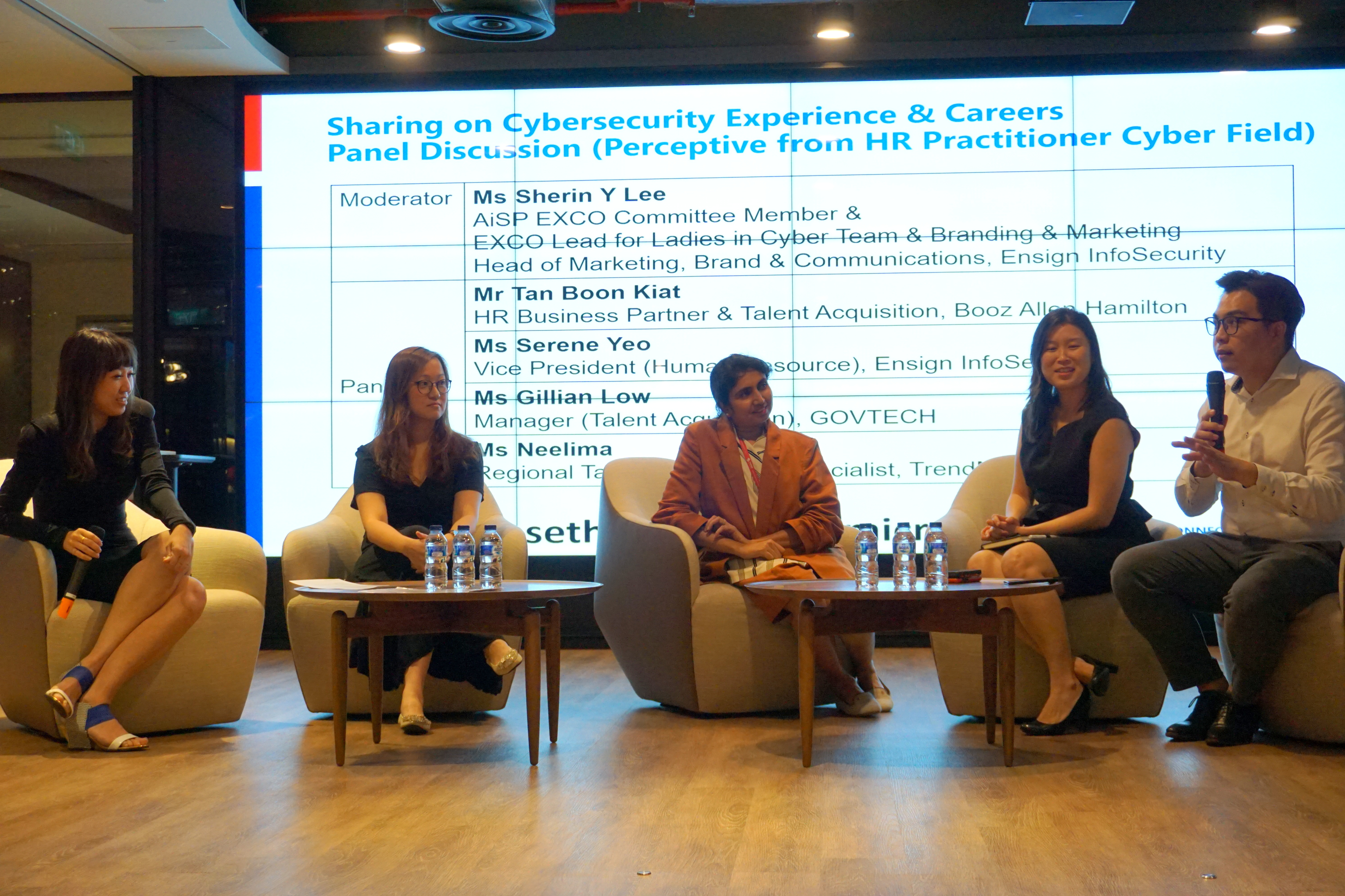How to bridge the gender gap in cybersecurity

Cybersecurity is still a male-dominated profession, but women are starting to get in on the action. From showing more confidence in their technical skills to being adaptable, women can play to their strengths to build a fulfilling career in cybersecurity.
Though no less capable than their male counterparts, women are still underrepresented in science, technology, engineering and mathematics (STEM) roles, and the field of cybersecurity is no exception.
The cybersecurity industry is actively seeking to reverse this trend, and a panel of speakers at the ‘Ladies in Cyber Career’ talk, organised by the Association of Information Security Professionals, provided their insights on how women's participation can be bolstered in a male-dominated cybersecurity landscape.
The panel consisted of Ms Gillian Low, manager (talent acquisition), Government Technology Agency of Singapore (GovTech); Mr Tan Boon Kiat, human resource business partner and talent acquisition, Booz Allen Hamilton; Ms Serene Yeo, vice president (human resource), Ensign InfoSecurity; and Ms Neelima, regional talent acquisition specialist, Trend Micro. Ms Sherin Lee, head of marketing, brand and communications at Ensign InfoSecurity, moderated the session.

Be confident and play to your strengths
Like mathematics and physics, “cybersecurity is very technical in nature,” said Mr Tan, observing that some men may doubt the technical capabilities of female cybersecurity consultants.
Mr Tan also mentioned that “women tend to be less vocal” and this could reinforce the unconscious bias leading women to be seen as less technically proficient. Agreeing with Mr Tan, Ms Yeo noted how women tend to be more conservative when estimating their abilities, which places them at a disadvantage.
“Research has shown that when men look at a job advertisement, they think, ‘I've never done this before, but I think I could, so I'll try.’ On the other hand, women think, ‘I can do some but not all of it, so I better not apply’,” Ms Yeo explained. Hence, she encouraged women to have more confidence in themselves, and that “what's important here is to step out of your comfort zone and do something you have not done before.”
Indeed, women should not feel less able in cybersecurity, said Ms Neelima, who urged them to play to their natural strengths. “As women, when we go out, we are cautious and careful. We know when someone is looking at us from half a mile away or walking behind us. Is this not true?” she said. “Being careful and conscious is in our DNA. Women can definitely enter cybersecurity and value-add, and even participate better than men.”
Securing the future with the right skills
For women seeking an entry point into cybersecurity, Ms Low presented several pathways they could explore with GovTech.
“We run quite a number of programmes. One of these is our Smart Nation Scholarship. We are also open for internships throughout the year, which is another way to gain exposure to cybersecurity. There is also the two-year Technology Associate Programme, where you will be assigned a mentor in the field you wish to specialise in,” she said.
Emphasising that employers looked beyond degrees and certifications, she highlighted that “GovTech does not hire strictly by qualifications. We even welcome people with backgrounds in commerce and business. What we are actually looking for is passion about cybersecurity, demonstrated by what applicants have been doing on their own, like penetration testing and digital forensics in their home lab,” she added.
Importantly, Ms Low stressed that women who are constantly picking up new skills—and who take the initiative to learn independently—will make it not only in cybersecurity, but also in any other field of their choosing. This sentiment resonated with Ms Yeo.
“In any technical field, things will evolve over time. You have professions today that didn’t exist in the past. So similarly, as the world evolves, we have to evolve with it. Being curious, wanting to know what's next, and adapting to it, I think that's important,” she concluded.


